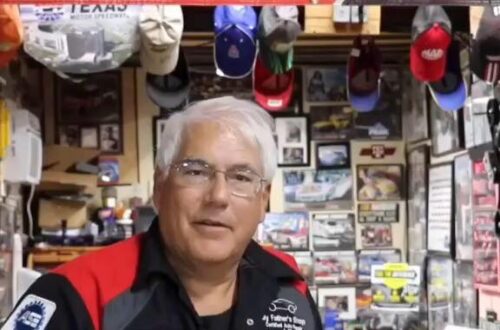
Praxis v. Practice: NJ Law Seeks to Alleviate Vo-Tech Teacher Shortage
Published in New Jersey Automotive – Thomas Greco Publishing
As shops seek to fill their facilities with qualified talent, the lament about the technician shortage has been heard from coast to coast for years, but rarely does anyone talk about a related problem that contributes to the lack of qualified talent available for body shops to hire: the teacher shortage!
 While it seems that there are fewer teachers filling classrooms each year in general, vo-tech schools seem to suffer the most from the dwindling profession. In fact, the lack of skilled trades teachers has led to several programs shutting down once their instructors retired simply because there was no one available to fill the empty role. Several auto body programs in New Jersey have been eliminated or forced to fuse with the automotive curriculum in recent years for this reason.
While it seems that there are fewer teachers filling classrooms each year in general, vo-tech schools seem to suffer the most from the dwindling profession. In fact, the lack of skilled trades teachers has led to several programs shutting down once their instructors retired simply because there was no one available to fill the empty role. Several auto body programs in New Jersey have been eliminated or forced to fuse with the automotive curriculum in recent years for this reason.
Why are auto body teachers in such short supply? One of the challenges that many Jersey vo-tech schools face when looking to hire a teacher in the trades is the need for a new instructor to pass the Praxis before teaching in public schools. The Praxis certification exam, which tests for reading, writing and mathematics, is required to be a teacher in around half of this nation’s states; however, some states allow prospective educators to obtain their teaching license through alternative teacher certification programs.
Thanks to Governor Phil Murphy’s P.L. 2021, c.420, signed into law in 2022 and which was supported by the NJ Education Association (NJEA), the Garden State recently became one of those states.
According to a memo issued by the NJ Department of Education (DOE), candidates will be able to “demonstrate proficiency in the use of English language and mathematics through an alternate measure,” allowing “provisional CTE educators, who have met all other certification requirements, an alternate pathway to standard certification.”
Career and technical educators would instead demonstrate their skills and acquire eligibility for certification based on a demonstrated, approved by the DOE, such as (but not limited to):
• A portfolio of work products as approved by the superintendent of a candidate’s employing school district;
• Obtainment of an occupational license/industry certificate; or
• An industry certificate or registration.
Of course, there is still a provisional period before one can officially obtain certification – after all, it’s important to make sure that teaching is a right fit on both ends. But overall, the state’s decision appears to be a step in the right direction when it comes to filling the need for fresh talent in the collision repair industry.
Students respond better to passionate teachers (here’s some proof: grecopublishing.com/nja0522localnews), and when teaching a skilled trade, it’s much more effective to actually possess that skill being taught. Prioritizing hands-on abilities over test-taking scores just makes sense in the trades where students need to learn by practicing techniques rather than jotting down theories on paper.
“Most vocational instructors do not graduate college and go directly into teaching.We must first spend countless years mastering our trade, honing our skills and becoming subject matter experts,” Sussex County Vo-Tech Automotive Technology instructor Brian Ward wrote in the June 2021 edition of the NJEA Review. “During this time, we usually receive industry credentials, certifications and/or professional licenses validating our knowledge and skills. The time needed to master the trade comes with a price: several years have gone by and what is current for individuals fresh out of college has become foreign to most trade professionals.
“We have become experts in our fields, which include industry-related math, technical writing and reading skills but these may be far from what is assessed on a Praxis test,” he added, claiming, “The Praxis is a poor tool to predict vocational educator success.”
Through the new alternate measure for CTE certification, that’s one less barrier for potential auto body teachers. Of course, vo-tech instructors are certainly facing other challenges. If you missed our two-part round table discussion with several NJ collision repair educators last year, follow this link and check it out at grecopublishing.com/nja0523localfeature and grecopublishing.com/new-jersey-automotive-june-2023.
Learn more about the Alternate Route Program at nj.gov/education/certification/cte/alternate.shtml. For questions regarding the CTE basic skills alternate measure, contact the Office of Recruitment, Preparation and Certification at (609) 292-2070 or send an email to altroute@doe.nj.gov.




